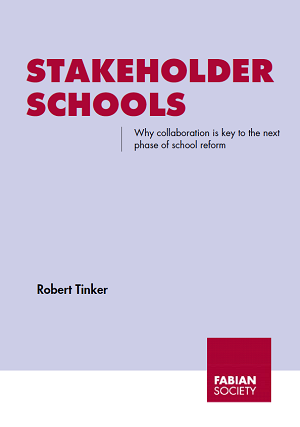A national constitution for schools has been proposed by the Fabian Society after research by the Labour-supporting think tank showed the need for “strong collaboration” between institutions.
The group’s report Stakeholder Schools: Why collaboration is key to the next phase of school reform calls for a document to set out the “rights, roles and responsibilities of children, parents, staff and the local community in the life of schools”.
The report claims the Fabians’ research demonstrates that future improvements in English schools will “depend on strong collaboration within and between schools, which a national statement of rights and responsibilities will help to bring about”.
It criticises current school governance arrangements which it says “undermine the participation of parents, staff and communities” and calls for reform to the governance of schools to “re-introduce strong local accountability”.
Under the terms of the proposed constitution, schools would agree to:
 – Help young people thrive as citizens and serve society as a whole
– Help young people thrive as citizens and serve society as a whole
– Champion equality, dignity, transparency and probity
– Share power with young people, giving them appropriate control and responsibility
– Trust and empower employees, so they can use their skills and insights and develop in their vocation
– Be dedicated to continuous improvement and value for money
– Be enduring community institutions, with their own identity, values and relationships
– Set priorities autonomously through shared decision making involving citizens, employees and service leader
– Be accountable to democratic politics, responding to local and national political priorities
– Achieve success through collaboration with partner institutions
The report recommends giving local authorities a “codified role in supporting and holding to account all schools”, removing the need for academies to answer directly to the government, and calls for government financial support for schools wishing to become cooperative schools.
It goes on to demand “full and meaningful consultation with parents, staff, pupils and the community” as a legal requirement before an academy conversion takes place, the scrapping of academy orders, and a system whereby Ofsted is given legal powers to fully inspect academy chains as a whole. Many of these points directly conflict with proposals in the government’s education and adoption bill.
Report author Robert Tinker said: “To achieve great results for children, schools need to be rooted in their communities, because local relationships of trust, collaboration and empowerment underpin the work of the best schools.
“Sadly this government’s reforms have hindered these local relationships and greatly reduced the scope for local accountability and collaboration. Ministers should introduce a national constitution for schools in England that explicitly sets out the role parents, children, staff and local communities should play in the life of each school.”

But Jonathan Simons, head of education at the right-leaning think tank Policy Exchange described the report as “puzzling”.
He said: “There are some sensible points in here around the benefits of schools serving their local community and working in partnership – both of which, of course, already take place across the country.
“But the report also proposes, to remedy what it suggests is over-centralisation since 2010, a large scale and inflexible national constitution for the entire school system and a series of additional duties on all schools regardless of circumstance.”
A spokesperson for the Department for Education said the academies programme was a “key part” of the government’s commitment to deliver “real social justice by giving every child access to an excellent education”.
She added: “The advantages and freedoms enjoyed by these schools are transforming the education of millions of pupils across the country by turning around struggling schools under the leadership of strong sponsors.
“Academies operate under a strict system of oversight and accountability, which is more robust than in council-run schools.”



Your thoughts